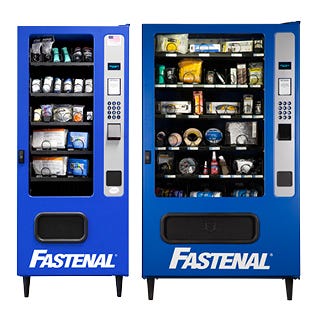Fastenal, a Very Profitable Boring Business
Yes, high profitability is possible in the distribution sector
Fastenal is a renowned American company. It is a distributor of wide-ranging industrial and construction product. Founded in 1967, Fastenal has emerged as a leading provider of a vast array of products, ranging from fasteners and tools to safety supplies and maintenance essentials.
With a robust network of over 3,300 stores worldwide, Fastenal is dedicated to delivering unparalleled service and high-quality products to businesses across diverse industries. Recognized for its commitment to customer satisfaction and innovative solutions, Fastenal plays a pivotal role in supporting the growth and efficiency of businesses by providing them with the tools and resources they need.
In this article, we will present Fastenal, explain how they achieve this level of performance and present the metrics and SWOT for the company. Let’s dig in!
Company overview
At first sight, Fastenal is one of the best example of a boring business. A boring business typically refers to a company or industry that deals with mundane or routine products, often lacking the excitement or novelty associated with more innovative or dynamic sectors. However they manage to create some excitment.
First, digital sales represent almost 50% of the revenue. In this old sector, this is a very interesting feature.
Secondly, they are widening their moat, using 4 pilars:
Onsite sales. Providing dedicated personnel and inventory within the customer’s facility – an “embedded branch” tailored to their needs.
National accounts. Pursuing shared success with multisite (often multinational) companies through a set of collaboratively-defined commitments and goals
Fastenal Managed Inventory. A roughly $55M annual investment in point-of-use technologies and devices installed in customers’ facilities.
Fasteners. Supporting manufacturers with deep product expertise, agile inventory management, captive transportation, and industry-leading sourcing and quality capabilities.
The 2 most interesting sources of moat are: onsite and FMI. This is mainly due to their vending machine systems.
Industrial vending machines
Industrial vending machines are classic distributors but for fasteners, PPE (Personal Protective Equipment), tools or consumables. The customer chooses what he wants to put inside, his employees help themselves and fastenal comes to restock at an agreed frequency.
This has advantages for both sides:
For the customer, it helps gaining timing on the management of this category of products. Usually, indirect costs can go up to 50% of the cost of the product. For instance, a $5 pair of gloves can cost a total of $7.5 for the company. A reduction in consumption is also to be expected. Between 15% and 30%. No inventory to manage, no orders, everything is simpler
For Fastenal, it allows 3 things: selling at a higher price as there is a service, selling services and recurring payments for machines and replenishment and taking market shares from competitors, as most of the products used can go through these machines
It also creates a switching cost. Other solutions exist like FastBin, a multi-bin system, replenished by Fastenal and using RFID technology.
Diversifying in Services & Solutions
In order to increase their moat and their revenue, they try to develop different kind of new offers:
Supply solutions (including Industrial Vending Machines)
Expert consultants
Manufacturing services
Industrial services
Compliance and sourcing
This approach allows Fastenal to enhance its value proposition and remain a versatile partner. In addition to improving the moat, it increases both the top-line and the bottom-line.
Market size by 2030
It is hard to define the market of Fastenal to identify the potential future growth.
The US industrial fasteners market is expected to grow at 2.9% until 2030 (so quite slowly!). The global industrial fasteners market should grow faster, around 4.6% by 2030, but there is an assumption here that Fastenal will manage to extend internationally.
Industrial services should grow at a rate of 6.1% and industrial vending machine should be more dynamic with a 9.8% CAGR by 2030.
Averaging of the different markets, a fair assumption of a Total Addressable Market’s (TAM) growth for Fastenal could be between 5% and 6% by 2030. This is slightly under the current expected growth by 2025 by analysts.
Keep reading with a 7-day free trial
Subscribe to Quality Stocks to keep reading this post and get 7 days of free access to the full post archives.






